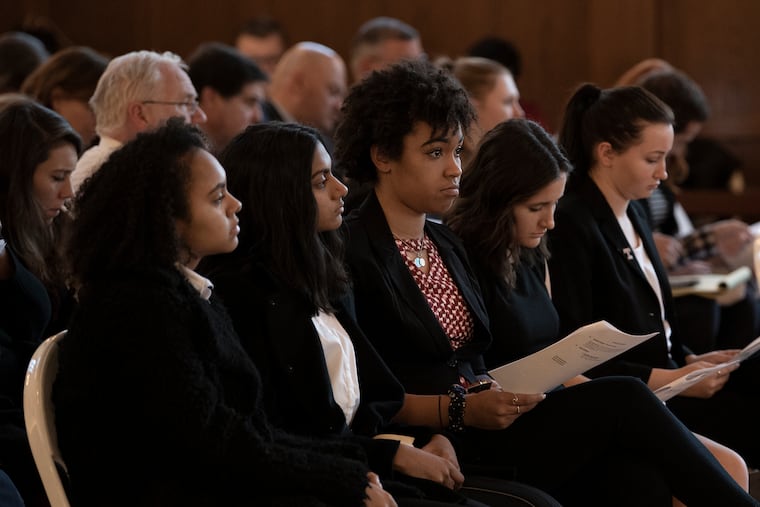Should universities allow racist speech on campus? | Opinion
When we censor racist speech, racial minorities lose out. So do the rest of us, because we don’t get to hear what they have to say.

Why should we allow racist speech on campus?
It’s a fair question, especially in the age of Donald Trump. We’re governed by a president who has maligned Mexican immigrants as rapists and African countries as shitholes. Surely we don’t want that kind of hateful vitriol at our colleges and universities, where everyone should feel valued and included.
But censoring speech will always end up harming the people whom it aims to protect. Yes, you should raise your voice against racism. Yet when you try to restrict what others can say, racial minorities will suffer.
Consider Jamie Riley, the African-American dean of students at the University of Alabama, who resigned several weeks ago following an uproar over several of his old tweets. One described the American flag as a racist symbol; another questioned whether white people could perceive racism, since they had not experienced it.
The tweets were picked up by Breitbart and other right-wing media voices, including Dinesh D’Souza and Laura Ingraham. Shortly after that, Riley stepped down. Students then staged a sit-in at the president’s office, arguing that the dean had been deprived of his right to free speech.
They’re right, of course. But I didn’t hear any of these students protesting last year, when the university expelled a white student after an Instagram surfaced of her unleashing a deluge of racist slurs. They can’t have it both ways: either you believe in free speech, or you don’t. And once you start limiting it, the limits will be turned against you.
That’s what happened at the University of Michigan, which instituted a speech code in 1987 after a set of racist incidents on campus. Over the next 18 months, before a court struck down the code as unconstitutional, whites charged blacks with violating it in 20 cases. One African-American student was punished for using the term “white trash.”
Just last year, meanwhile, a Temple official suggested that African-American professor Marc Lamont Hill should be dismissed for demanding a “free Palestine from the river to the sea,” which echoed a common refrain of groups that seek Israel’s destruction. “Free speech is one thing,” board chairman Patrick O’Connor fulminated. “Hate speech is another.”
Do we really want our universities deciding which is which? Hill kept his job, but Essex County College instructor Lisa Durden wasn’t so lucky. After she appeared on Fox News in 2017 to defend a Black Lives Matter event that asked non-blacks not to attend, she was fired. “Institutions of higher learning must provide a safe space for students to explore, discuss, and debate,” the college president explained. “Racism cannot be fought with more racism.”
But nor can it be fought with censorship, which will inevitably muzzle the people with the least power. No space is safe if you can’t say what you think. And once you lose that right, you can’t decry other forms of oppression and injustice.
That’s why every great warrior for African-American freedom in our history—including Frederick Douglass, W. E. B. Du Bois, and Martin Luther King, Jr.—was also a champion of free speech. Douglass called it “the great moral renovator of society and government”; without it, he said, progress was impossible.
“To suppress free speech is a double wrong. It violates the rights of the hearer as well as those of the speaker,” Douglass told a Boston audience in 1860. “It is just as criminal to rob a man of his right to speak and hear as it would be to rob him of his money.”
But that’s exactly what many colleges and universities continue to do. Although every court that has examined campus speech codes has struck them down, hundreds of institutions still have them on the books. Others exert less formal controls, pressuring people like Jamie Riley to keep their mouths shut.
In my own view, Riley's tweets weren't racist. But other people saw them differently, of course, which is the whole point here. When we censor racist speech, racial minorities lose out. So do the rest of us, because we don’t get to hear what they have to say.
It’s a double wrong. And it’s on all of us to make it right.
Jonathan Zimmerman teaches education and history at the University of Pennsylvania. He is the author of “The Amateur Hour: A History of College Teaching in America,” which will be published next year by Johns Hopkins University Press.